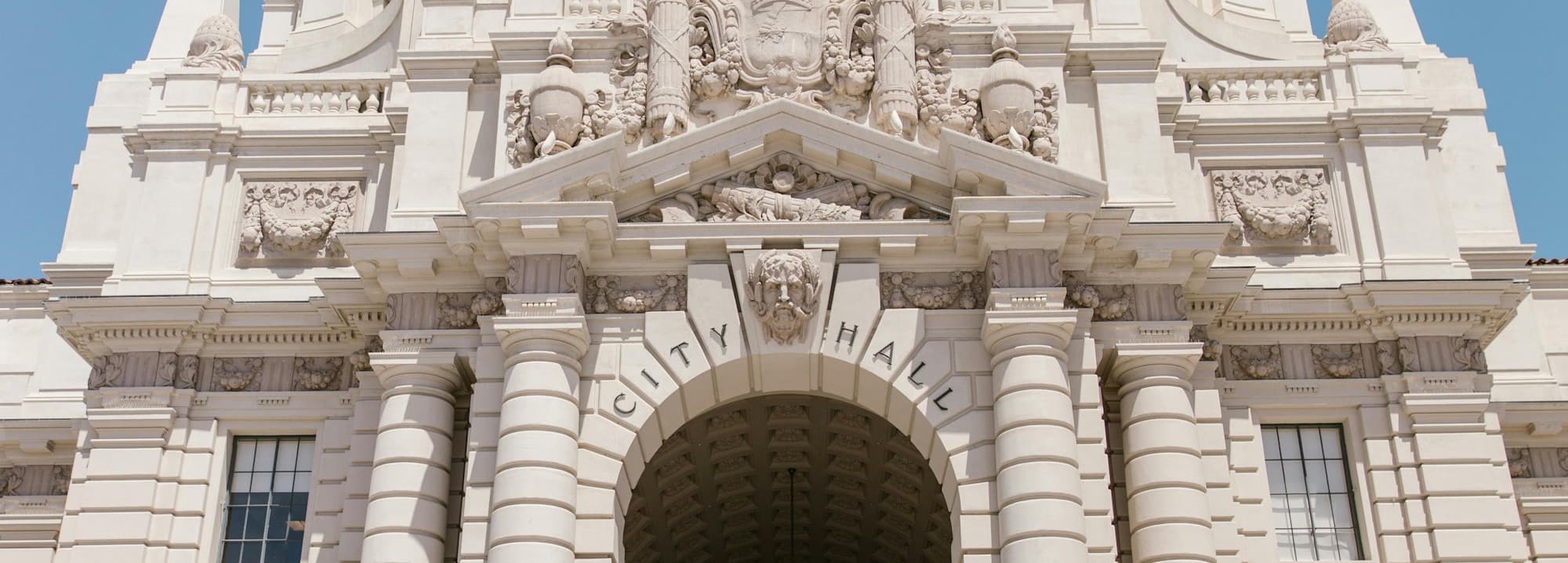
How to Run for Mayor in 2026: Step-by-Step Guide
Thinking about running for mayor? You’re not alone. Across the country, more people are stepping up to lead their cities, especially as local issues like housing, transportation, public safety, and transparency become harder to ignore.
If you want to make a meaningful difference, becoming mayor is one of the most direct ways to shape your community’s future. This guide walks you through how to run for mayor in 2026, from understanding the role to getting on the ballot and building a grassroots campaign that connects with voters.
What Does a Mayor Do?
The role of mayor looks different depending on your city’s structure, but in general, the mayor serves as the chief executive of local government.
A mayor may:
Oversee public safety and emergency planning
Collaborate with the city council on legislation
Guide or influence the city budget
Shape priorities around housing, transportation, or development
Represent the city to residents, regional partners, and state or federal agencies
Some cities use a mayor-council structure where the mayor has executive authority, while others use a council-manager system where a city manager handles daily operations. However your city is organized, the mayor’s role is ultimately about leadership, responsiveness, and setting a vision that reflects the needs of the community.
How to Run for Mayor in 2026 in 4 Steps
You don’t need a political machine or insider experience to run a competitive mayoral campaign. What you do need is a clear plan, a grounded message, and a commitment to showing up for your neighbors.
Step #1: Learn the Rules and Understand Your Local Landscape
Before launching a campaign, make sure you understand how mayoral elections work where you live. Every city has different requirements, deadlines, and election cycles.
Check Your Eligibility
Most mayoral candidates must:
Be a U.S. citizen
Be at least 18 years old
Be a resident of the city, sometimes for a specified period like 6 months to 1 year
Be a registered voter
In some places, you can’t run for mayor if you’re currently an employee of the city to avoid any conflicts of interest. However, check with your local board of elections to confirm the eligibility requirements in your area.
Understand How Your City Elects Its Mayor
Cities vary widely in whether municipal elections are partisan or nonpartisan, whether the mayor is elected citywide or by district, and whether elections occur during the general cycle or in off years.
While many cities hold their mayoral elections in odd years, 2026 is still a major election year for many U.S. cities, such as:
Los Angeles, California, has a mayoral election with a primary scheduled for June 2, 2026 and the general election on November 3, 2026.
St. Petersburg, Florida, will hold a 2026 mayoral election, with a primary in August and a general election on November 3, 2026.
Louisville, Kentucky, also has a mayoral election slated for November 3, 2026, under its newly nonpartisan election structure.
Sioux Falls, South Dakota, will hold its mayoral election on June 2, 2026.
If you live in a city with a 2026 mayoral race, now is the time to plan a campaign, especially since filing deadlines often come months before any elections take place.
Know Your Filing Deadlines
Filing windows can open months before election day. Missing a filing deadline is one of the most common early mistakes for new candidates.
Make sure you know:
When candidate filing opens
When it closes
Whether petitions must be submitted in person
What identification or notarization is required
This foundation shapes the rest of your campaign timeline.
LEARN MORE: Use our free election look-up tool to see what roles are up for election in your city and when you can file.
Step #2: Build a Focused, Community-First Campaign Plan
Once you understand the rules, it’s time to plan your campaign. Your message, your team, and your strategy should all tie back to the needs of your community.
Define Your Core Message
Your message should clearly answer:
Why are you running for mayor?
What local problems will you address?
How will your leadership make a difference?
The first female mayor-elect of Port Wentworth, Georgia, Tracy Saunders, emphasized the importance of clarity and discipline in communication:
“I would say that the most challenging thing for me was paring down my messaging and working on how I communicate. I tend to be very wordy. I'm an English teacher. I'm very talkative, and when I have something to say, I want to make sure I get all the details in.”
To start narrowing down your message, listen to neighbors, civic groups, small business owners, and community leaders. The wants and needs of your community can help you refine your priorities and keep your campaign grounded.
LEARN MORE: See how to start building your own winning campaign message.
Build a Realistic Campaign Timeline
Work backward from election day:
When will you announce your campaign?
When will you start canvassing?
When will you release your website?
How will you sequence fundraising pushes?
How will you plan for debates, community events, or candidate forums?
This is also where many first-time candidates underestimate one major factor: time.
“Time management was a huge thing for me,” said Saunders. “I have six children at home, and my husband works second shift during the week. If you can get a handle on that and map out and plan ahead what you want to do and how you're going to do it, that is something that I wish I could have done because that was definitely a personal challenge, at least in my house.”
Be realistic with your schedule and ask for help in advance. Campaigns can be time-consuming and draining, but the more you plan ahead, the more sustainable you can make your run.
Assemble a Small but Effective Team
You don’t need dozens of staff members, but consider looking for friends or acquaintances to fill a few key roles, like:
A campaign manager
A treasurer or compliance lead
A digital or communications helper
A field lead or volunteer coordinator
Volunteers can also be invaluable for everything from social media posts to canvassing.
“An acquaintance of mine reached out to me and said that her daughter was interested in working on my campaign,” said Saunders. “She did a whole series of graphics for me. She did an amazing video that I was able to release three days before the election as kind of a ‘Get Out the Vote for Tracy’ video, and it was fantastic. It looks professionally done.”
LEARN MORE: Explore how GoodParty.org’s campaign tools can help you keep your team lean and efficient.
Plan a Budget You Can Sustain
Depending on the size of your city, mayoral campaigns can cost anywhere from a few thousand dollars to millions.
Most campaigns need funds for:
Filing fees
A basic website
Yard signs and flyers
Canvassing and outreach tools
Campaign event costs
Digital advertising
Start fundraising early, even if it feels uncomfortable.
“I think had I learned early on how to be comfortable with asking people for money, I would have done a lot better in the fundraising,” said Saunders. “That's honestly my least favorite part of it because I don't like to ask for help, and for the longest time, I was very hesitant.”
Relying on texting, palm cards, social media posts, and volunteers can make the process of asking for donations easier. Even if it’s only a few dollars here and there, those small, steady donations from neighbors can add up quickly.
LEARN MORE: Check out how political fundraising platforms make it easier for your supporters to donate.
Step #3: File Your Paperwork and Get on the Ballot
Once you file your paperwork, that’s the moment your campaign officially becomes real.
To get on the ballot, you’ll typically need to submit:
Declaration of Candidacy: A form stating your intent to run. Some require notarization.
Naming a Treasurer: You typically must designate a treasurer and open a campaign bank account before raising or spending money.
Financial Disclosure Forms: You may need to disclose income sources, property ownership, or potential conflicts of interest.
Signature Petitions: Signature requirements vary widely, from a few dozen to tens of thousands.
Treat gathering signatures as early outreach rather than a paperwork chore. Petitioning lets you meet voters, introduce yourself, and begin building name recognition.
Step #4: Run a Grassroots Campaign That Connects
The heart of a successful mayoral run is grassroots outreach, conversation, visibility, and persistence.
Show Up Where People Already Are
To keep your campaign aligned with your voters, prioritize:
Town halls, listening sessions, and community meetings
Farmers’ markets, festivals, and civic events
Neighborhood associations and business groups
Even as digital tools become more available, face-to-face outreach remains one of the most effective tools in local politics.
Use Digital Tools to Expand Your Reach
Modern mayoral campaigns rely heavily on online visibility.
You’ll likely want:
A simple campaign website
Facebook, Instagram, and/or TikTok pages
A volunteer and email list
Basic digital advertising, like Facebook ads
SMS or text outreach tools
The tools you should use depend on your community. For instance, if a lot of your voters are older and mostly on Facebook, focusing on ads there could be beneficial. However, if your city has a large, active group on Reddit, that can be a good place to connect with people about your race.
“My last post on Reddit that had to do with the election got over 5,000 views,” said Saunders. “That's insanely huge for a town of 17,000 people, to have 5,000 people look at my post and interact with it long enough for it to register.”
Your outreach should be as diverse as your community needs it to be, but start early, as some of the approval processes can take a while.
“I used Facebook, TikTok, Instagram, Reddit, Nextdoor, LinkedIn,” said Saunders. “I definitely recommend getting Facebook, Meta, and TikTok all set up for monetization and for advertising at the very beginning. The process is time-consuming and frustrating.”
Finish Strong With a GOTV Plan
As election day approaches, your campaign is less about persuading potential voters and more about getting supporters to the polls.
A successful get-out-the-vote (GOTV) plan includes:
Sending GOTV texts or calling known supporters
Posting clear voting instructions
Reminding people of early voting or mail-in options
Encouraging supporters to bring a friend
Showing up in person and online
Local elections are plagued by low turnout, with many races often being decided by only a handful of votes, so GOTV efforts are crucial to any winning campaign.
LEARN MORE: Mobilize your supporters with these proven GOTV strategies.
Lead Your City Forward With Integrity and Purpose
Running for mayor is a meaningful way to shape the future of your city, but it’s also a challenge. Local campaigns ask you to juggle competing demands, learn on the fly, and navigate moments of uncertainty.
“Any first-time candidate is going to have issues in their campaign that they're not prepared to deal with,” said Saunders. “You're going to have those moments where you just don’t know what to do.”
For Independent and nonpartisan candidates, that learning curve can feel even steeper without party infrastructure behind you.
As Saunders put it, “the biggest challenge of running as an Independent candidate is that you're independent. It's that you don't have built-in support and access to those big party affiliations.”
But independence doesn’t mean isolation. You can run a competitive, community-powered campaign with the right tools, guidance, and support behind you.
GoodParty.org is here to fill that gap, empowering local nonpartisan and Independent candidates with free and low-cost campaign tools, voter outreach support, and messaging guidance. Whether you’re building your first campaign plan or gearing up for election day, you don’t have to figure it out alone.
Photo by RDNE Stock project
Book a demo to see how GoodParty.org can help you build a people-powered mayoral campaign grounded in integrity and local impact.

